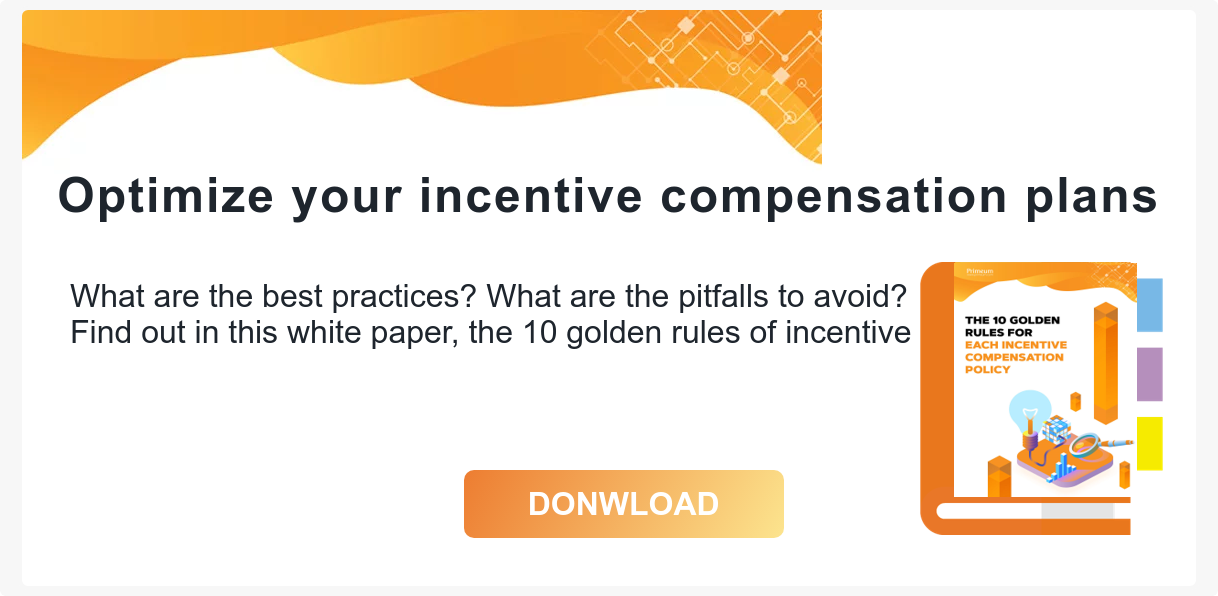A company’s commercial success depends heavily on the ability of its sales force to implement the commercial strategy. However, it can often be tricky for managers to find the right motivational inspiration to incentivise their sales teams to produce the performance level expected. Here we present the 7 pillars necessary to ensure commercial success.
1. KEEPING SALES TEAM INFORMED
A sales person cannot be effective if they don’t have all the information they need regarding the products or services they’re supposed to be selling, and ineffectiveness is not in your best interests. The sales people need exact information about their prospective sales. Take the time to communicate everything they need to know; this will help the sales agent to fully achieve their goals, and innovate with their sales strategy and ability to persuade customers during meetings.
2. Preparing for pushback
One of the fundamental requirements for success in sales is the agent’s ability to respond to objections from prospective customers. Moreover, they must be able to guide and inform customers on their choice of product as a trusted advisor. The best method for achieving this involves developing scenario-based role plays (during briefings in which targets are laid out). Another good practice is to pair junior sales agents off with more experienced sellers. This will help prepare new sales staff to deal with potential objections.
3. SETTING AMBITIOUS OBJECTIVES
An objective must be motivational, and sometimes ambitious, but never unrealistic! If you approach your sales staff during an economic downturn and ask them to up their targets by 10-20%, chances are they’ll show you that achieving this objective is easier said than done. And yet, according to a study carried out by the Tas Group in 2013, “40% of sales staff are motivated by the level of progress they achieve, while 35% are only motivated by the reward”. It’s preferable to opt for moderate objectives, taking into account the socio-economic context and the realistic aptitudes of each sales agent.
4. BE TRANSPARENT ABOUT COMPENSATION
Something that’s well-designed can be clearly explained. Don’t forget to draw up a communications plan for your compensation scheme! It will help interest and motivate your sales team. The best way to ensure your staff’s investment in the scheme is to explain in a simple way how the variable segment of their salary (commission, target bonuses, fringe benefits, etc.) is closely linked to their performance level.
5. PROVIDE TEAM WITH THE LATEST TECHNOLOGICAL TOOLS TO HELP THEM SAVE TIME
Sales technique expert Victor Cabrera makes it clear: “A good sales pitch can’t be improvised.” Therefore, it’s essential for each sales agent to use a well-honed speech and a clearly-defined sales strategy. It’s also important for your sales team not to have too many preconceptions about their customers. As Gaston Bachelard famously said: “Knowledge is developed by destroying old ideas.”
Phones and digital devices enabling sales forces to remain in contact with their network and client base are naturally welcomed – today, we have tablets, smartphones, WIFI USB key, computers, etc. It’s therefore important to keep an eye on technological advances, particularly with mobile sales forces, to ensure that their digital tools are up to date. Use the latest tools to help your sales agents optimise their time and increase motivation.
6. UNDERSTANDING THE ABCs OF SALES - ADOPTING AN INCENTIVISING VARIABLE PAY SChEME
A sales agent must never act like a robot, churning out the same speech; even if it is well-honed, to the prospective client it can feel impersonal and may not be fully adapted to the case at hand. According to Victor Cabrera, founder of the Technique de Vente (Sales Techniques) blog, “Don’t make the mistake of thinking that whipping out your arrows (your sales pitch) as fast as possible in order to nail the target (the client) will increase your final score. Take the time to choose your arrows and aim for the centre of the target! This is how you’ll succeed in increasing your score (revenues) and boost your commercial development.”
In addition, a good sales person must be cheerful, humble, persuasive, courteous, without ever making the client feel like they’re under pressure. The sales agent must be trained in how to avoid pitfalls in justifying the sale, in order to overcome any reticence from the prospective client.
Moreover, incentivising team to really close a sale also helps to avoid the infamous “larder effect”. Example: the sales agent has hit their bonus target a few days before the end of the performance cycle. They know they can’t increase their bonus by going beyond this threshold during the few remaining days, and so they tend to hold back on their potential sales. They then bring out these sales files during the next performance cycle in order to ensure they make their bonus during that cycle. This is an undesirable behavior as it reflects sub-optimal commercial efficiency - you’ll need to adapt a suitable bonus scheme in order to motivate your team to sell.
7. MONITORING SALES RESULTS
 Monitoring results is the best way to ensure you get the best results from your sales forces. If you don’t provide them with the means to monitor their results, they will be unable to provide clear statistics and enrich their client portfolio - it’s simple logic. A few examples of monitoring tools: surveys, insights, consumer experience analyses, etc. Your sales forces will be more motivated to take an interest in customer satisfaction if they stand to earn a bonus linked to measurable satisfaction levels.
Monitoring results is the best way to ensure you get the best results from your sales forces. If you don’t provide them with the means to monitor their results, they will be unable to provide clear statistics and enrich their client portfolio - it’s simple logic. A few examples of monitoring tools: surveys, insights, consumer experience analyses, etc. Your sales forces will be more motivated to take an interest in customer satisfaction if they stand to earn a bonus linked to measurable satisfaction levels.





